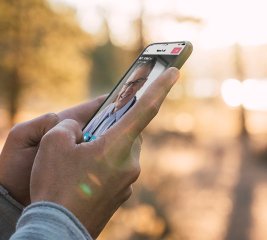
The sun is out and you may be ready to get your first tan of the season. Before you do, remember the health risks involved. We talked to Dr. Mia Finkelston, who treats patients using LiveHealth Online, about what people should know before they go out in the sun.
Dr. Finkelston shared 5 things to know below including how you get a tan in the sun:
- Understand what a tan is. When you lie out to get a tan or when you are in the sun at all, the UVA radiation is what makes people tan. UVA rays penetrate to the lower layers of the epidermis, where they trigger cells called melanocytes to do their thing and produce melanin. Melanin is the brown pigment that causes skin to darken, or appear tan. Melanin is the body’s way of protecting skin from burning. However, that protection can also cause DNA damage which can lead to skin cancers.
- Tanning can cause premature agingand some other skin changes. “And they are not necessarily attractive or healthy,” adds Dr. Finkelston. Although the causes of premature aging are not always clear, unprotected exposure to harmful UV rays break down the collagen and elastin fibers in healthy young skin, and cause wrinkles and loosened folds. Frequent sunburns or hours spent tanning can result in a permanent darkening of the skin, dark spots, and a leathery texture.
- Start using SPF and never stop. The clouds do not protect you from harmful UV rays, whether you’re at the pool or on a hike! Some areas of our body are more prone to UV rays because they are exposed all of the time, such as the hands and face in particular. Be sure to cover these areas as they can show signs of aging the earliest! Be aware of hand washing and rubbing which can remove any sunscreen you may have applied to them.
- There are other ways to look tan. “There are some newer, amazing non-odoriferous products that can help you look like you have a tan without damaging your skin. Check them out!” says Dr. Finkelston.
- Don’t forget to cover your eyes. We tend to forget about our eyes, but they have a pigment just like your skin and can get damaged from UV rays as well. If you are light eyed, this is even more important, so be sure to wear sunglasses to shield your eyes from direct sun and any reflections (which can happen on cloudy days too). Don’t forget to see your eye doctor when you have light eyes for this reason.
Comments and opinions from Dr. Mia Finkelston are hers alone. This is content from an interview and is not considered medical treatment.
Sign-up for LiveHealth Online here.
Speak with a doctor online about these issues and more
Recommended Posts

During COVID-19, how can you help kids focus on Halloween fun instead of the fright, and still keep them safe? Follow these tips for a Healthy Halloween.

Telehealth doctors can provide advice and treatment options for many common conditions. While your local doctor or urgent care clinic can also provide these services, there are times when a telehealth visit may better meet your or your family’s needs.


